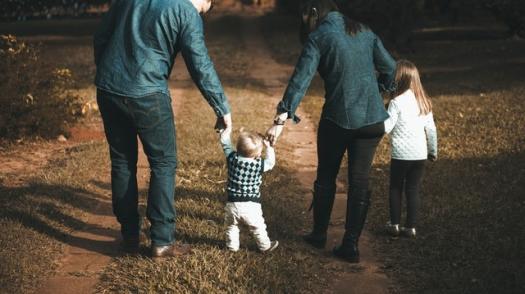
Share your story
Share your family's story. First-hand experiences are invaluable for families caring for a child with a brain injury.
After Ethan complained of headaches and fatigue he was diagnosed with an ear infection. However, an MRI scan revealed a brain tumour. Mum, Tina, shares their story.
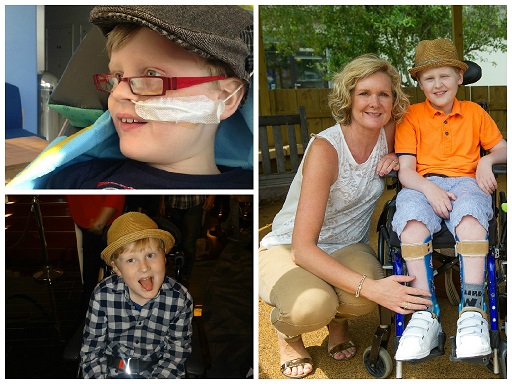
Published: September 2015. Date of brain injury: 2012, aged 7
“My seven-year-old son, Ethan was saying: 'Mummy, my head hurts again.'
“Oh my goodness, I’m ringing the doctor,” I told him, concerned.
Ethan had always been an energetic boy. Like his favourite animals, monkeys, he was full of fun and mischief – our very own cheeky monkey! Yet over the last couple of months he’d turned quiet, was clingy and complained of headaches.
He also cried over the smallest things, and fell over a lot. I was always spotting a new bruise or graze on his body.
Ethan’s schoolteacher and child minder both reassured me there was nothing to worry about. But in July 2012, during a holiday to Jersey, Ethan was having headaches every day and was often too tired to walk.
He had always loved life. Now everything was a struggle.
When we returned home to Felixstowe, Suffolk, I made a doctor’s appointment.
Meanwhile, my husband Andrew and I had bought tickets for Ethan and his older brother, Spencer, then 14, to go to the Olympics in London. Ethan, though, was so exhausted that Andrew spent most of the day carrying him.
Our GP diagnosed him with an ear infection and gave me a prescription for antibiotics.
"Aren’t you going to do an MRI scan?” I asked. “Are you worried about a brain tumour?” he asked. “No, of course not,” I replied, shocked. The thought had never entered my head. “Mum, what’s a brain tumour?” Ethan asked when we were outside the surgery. “It’s not something we worry about,” I reassured him.
Over the next week, however, Ethan’s headaches continued. “Is there something seriously wrong with me, Mummy?” he asked me.
Another visit to the doctor only repeated the diagnosis, so I got an appointment with a private paediatrician.
“Can you stand on one leg for me?” he asked Ethan.
A few months earlier, it had been hard to keep Ethan still. Now he couldn’t balance very well and was sent for an MRI.
The following afternoon, I checked my mobile and saw 13 missed calls. When I dialled the number, a doctor from Ipswich Hospital came on the line.
“The scan showed your son has a brain tumour. Bring him in as soon as possible,” he said. “Is it operable?” I asked. “We won’t know until the specialists at Addenbrooke’s Hospital have seen him,” he said.
With my heart thumping, I rang my sister Dawn and told her the news. My parents picked up Ethan from school, while I collected Spencer and headed to the hospital. Andrew met us there.
Even as we were shown Ethan’s scans, I told myself the hospital had got it wrong.
He’s only seven, I thought. The scans must belong to someone else.
“The tumour is the size of a satsuma and is filling up the fourth ventricle of Ethan’s brain,” the consultant said. “We need to act quickly. We can’t tell yet if it’s malignant or not, but it needs to come out.”
When the consultant explained what was wrong to Ethan, our boy quietly stared at his toy monkey, Max.
“Can you see the scans?” he asked. He seemed to accept that he was poorly, but that night, was too scared to sleep.
“Will the operation hurt?” he asked me.
“No. you won’t feel anything,” I assured him.
Ethan was moved to the neurosurgery unit at Addenbrooke’s in Cambridge and Andrew, Spencer and I were given a room in the hospital grounds.
On 27 September 2012, Ethan underwent a seven-hour operation. Afterwards, his surgeon was confident he’d cut all the tumour away. But that didn’t make it any easier to see Ethan, pale and still, with a two-inch cut from the top of his head down to the nape of his neck.
Then, just 12 hours after the op, he started having difficulty breathing. An emergency CAT scan revealed no obvious issues, but it became apparent he’d developed posterior fossa syndrome (PFS), a rare complication following brain surgery… and a devastating one.
Ethan lost the ability to speak and could no longer control his body. He was unresponsive and unable even to swallow food. Because the tumour had been close to Ethan’s gag reflex, he was constantly sick.
Having once been an auxiliary nurse, I washed Ethan, brushed his teeth and cared for him. It was all I could do.
Two weeks after surgery, we discovered the tumour was a very aggressive cancer. “But it’s all gone,” the surgeon reassured us.
A fortnight later, Spencer brought an iPad into the hospital. He showed his brother a clip from the Simpsons and we watched, overjoyed, as Ethan’s lips twitched, then he smiled. Our fun-loving boy was still there!
Soon after, Ethan started six weeks of radiotherapy. Every day we wheeled his hospital bed down for treatment, which often made him sick.
To stop him dreading the journey, we cut out pictures of monkeys and stuck them on the walls and ceilings along the route. Soon the whole hospital was talking about the invasion of monkeys, and Ethan became a bit of a celebrity.
It was a moment of sunshine at a dark, difficult time. Ethan was losing weight and halfway through the radiotherapy, he had to have a feeding tube put into his stomach. Just moving his eyes wore him out.
Once chemotherapy began, Ethan lost all his hair and was sicker than ever, even accidentally vomiting into a doctor’s handbag, which made him giggle!
Addenbrooke’s Hospital gave all the children on the cancer ward a bead every time they’d been brave. Soon Ethan’s string of beads was 26 feet long! He never once complained.
In December, Ethan returned to Ipswich Hospital. We were given permission to take him home for Christmas, but on Christmas Eve he was very ill and I wondered if we’d done the right thing.
Next morning, however, when we sat on his bed and opened his presents together, and we saw him smile, we knew it was worth it! The day after Boxing Day, Ethan returned to hospital, but his smile didn’t leave him.
“You’ve got such cheeky eyes!” a nurse told him.
I learnt a form of sign language to communicate with my son. Every day I signed “I love you” to him, and Ethan would sign it back. Five months after surgery, he was signing when he slowly croaked: “I…love…you”. “I love you too!” I cried, overcome with happiness to hear his voice.
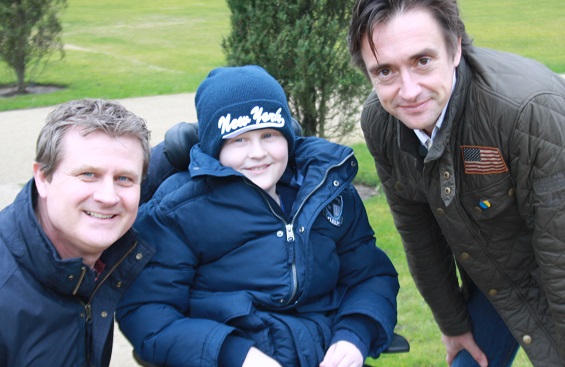
It was 10 months before Ethan came home for good. In January 2014, tests and scans revealed there was no sign of the tumour growing back.
A week later, he went to stay at The Children’s Trust, a national charity in Tadworth, Surrey, for children with brain injuries.
I moved into the parents' accommodation to be with him and every weekend we returned home to Spencer and Andrew.
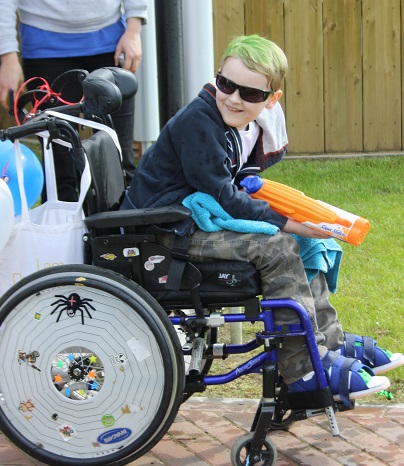
Ethan was given intensive speech and physiotherapy. He did physical activities such as horse riding and boxing and, after six months, he was able to walk short distances using a walking frame.
Ethan spent time at school and was so proud to be goalie when the boys played football. “My wheelchair keeps the ball out,” he grinned.
Since then, his recovery has continued thanks to twice-weekly physio, paid for by The Danny Green Fund, a PFS charity. He’s even visited America with the charity Dreamflight, where he swam with dolphins and visited Walt Disney World.
He also has a new best friend in Rosie, his cockapoo puppy.
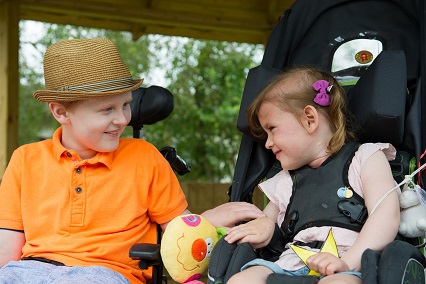
Despite everything he has been through, Ethan, now 11, has shown extraordinary resilience and remains as lively and loveable as he ever was.
Although his speech is still not 100 per cent, his reading is up with the rest of his class and he’s got a girlfriend, Jessica!
Ethan is growing up fast, but he will always be our brave, cheeky monkey.

Share your family's story. First-hand experiences are invaluable for families caring for a child with a brain injury.
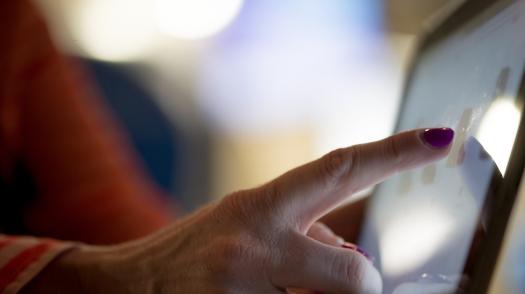
Read about how non-traumatic brain injuries can happen.
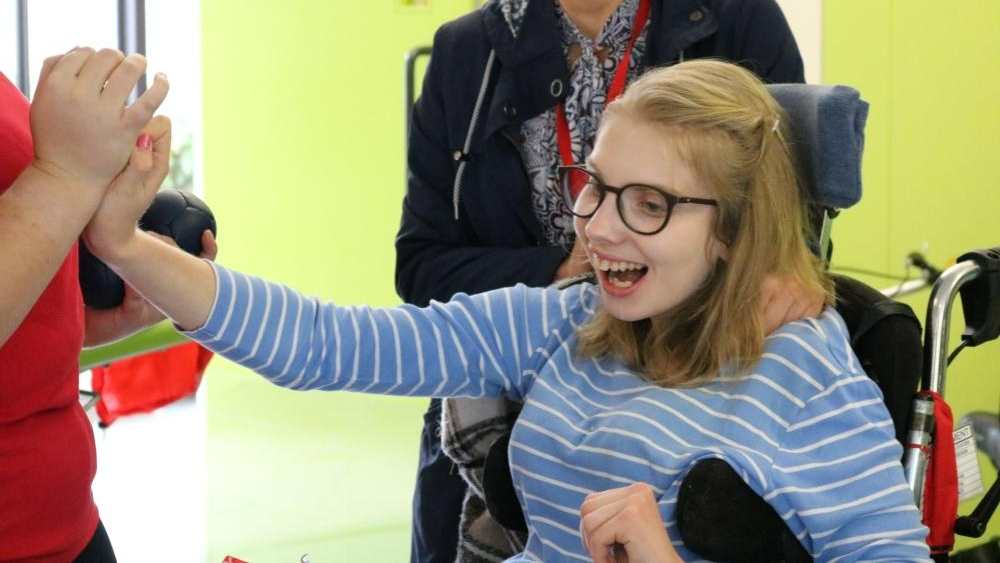
We offer a range of residential brain injury rehabilitation services for children and young people with acquired brain injury (ABI).